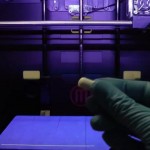 There have been some pretty cool things developed with 3D printing over the past few years. For instance, I wrote earlier this year about a new technology that can detect when milk is off, and warn the user prior to them drinking it.
There have been some pretty cool things developed with 3D printing over the past few years. For instance, I wrote earlier this year about a new technology that can detect when milk is off, and warn the user prior to them drinking it.
Interesting though that undoubtedly is, an even bigger story is surely the recent decision by the FDA to approve the first 3D printed drug.
3D printing medicine
The agency approved the drug Spritam, which is made by US pharma company Aprecia and aims to reduce seizures amongst epileptics.
The 3D manufacturing approach not only makes producing the pills easier, but it significantly helps the patients as it enables individual doses to be created. With doctors traditionally struggling to give epileptics drugs of the right dose, it’s solving a real challenge for the industry.
The pills are also believed to disintegrate in under 10 seconds, which is a very fast time for such a high dose drug.
Alas, as Aprecia are the first company to have successfully managed to print drugs in this way, they have taken ownership of the IP for the technique, and it appears unlikely that they will relinquish control over those patents prior to their expiry in 2033.
Will this prohibit the spread of 3D printing to deliver the kind of changes it has delivered in other industries?
The process certainly has enormous potential to facilitate the kind of personalized medicine that the industry has strived for for years, but it’s far from clear whether this is something Aprecia endorse.
Here’s hoping that they loosen the legal strings attached to the process and ensure that the winds of innovation herald the kind of changes to medicine that we all hope it might do.
Goodness, that would open a can of worms. I can't imagine it being wise to let people print their own drugs would it?
I don't think it's a case of individuals printing their own drugs. Not yet anyway.
Why would a pharmaceutical company print tablets instead of just spewing them out of another piece of equipment the way they have for decades? What's the advantage? Now, if a consumer could somehow 3D-print their own medicine at home, that would seem advantageous (to the extent one needs medicine).
You'd imagine as soon as big pharma start losing money because of this then it'll be squashed pretty quickly.
Designer/customized medicines – can't happen fast enough.